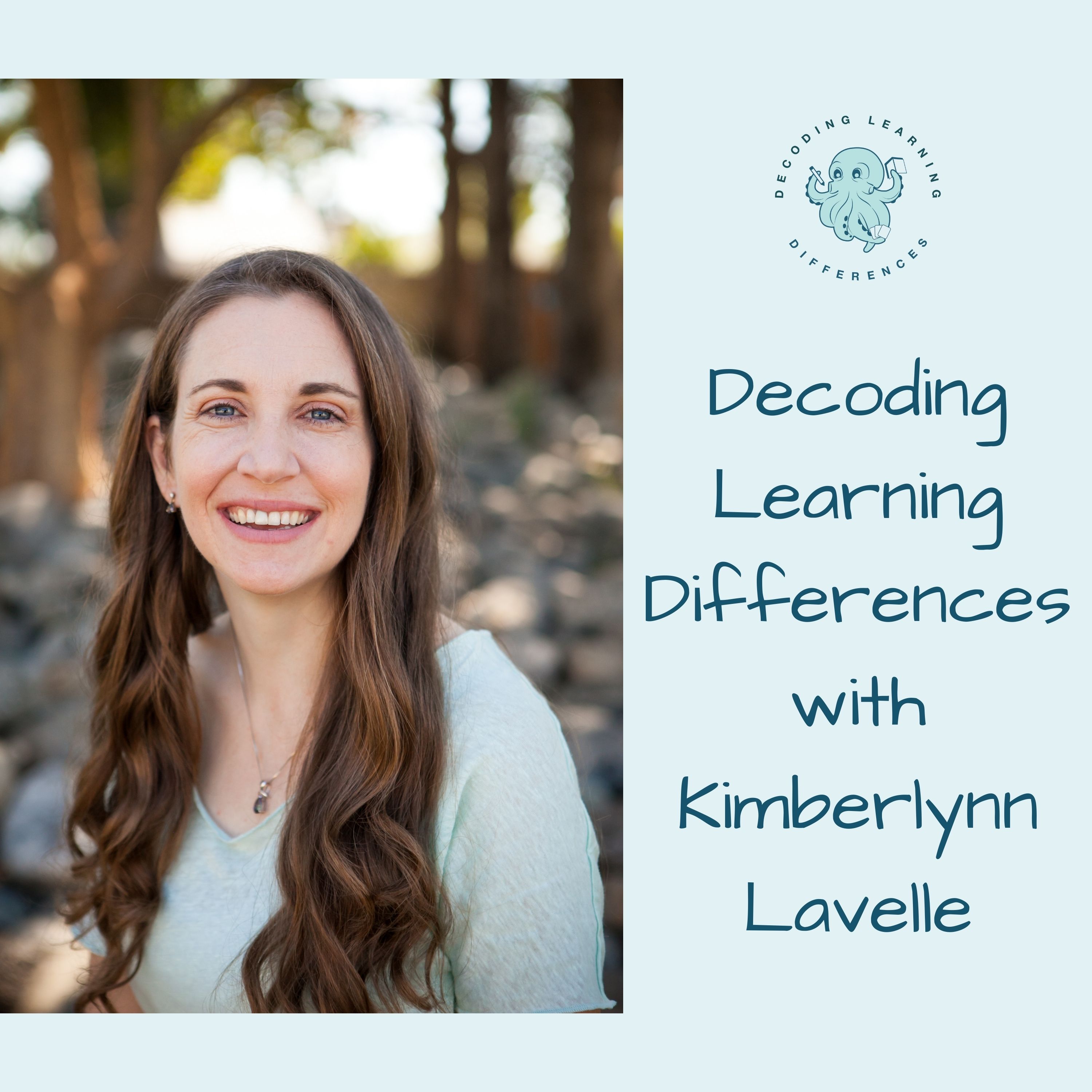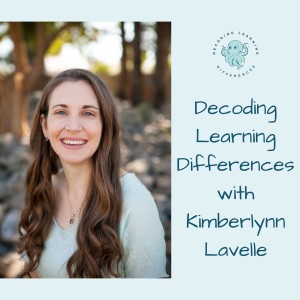

I teach parents how to educate their own children (especially those with struggling learners) so that they can successfully and peacefully homeschool or provide supplemental education at home. This podcast will discuss: - various learning disabilities and challenges, including: ADHD, dyslexia, autism, processing disorders, and so much more! - how all people learn - different learning styles - strategies for supporting specific learning challenges - how to apply these learning strategies at home - stories from homeschooling parents -interviews from other experts
I teach parents how to educate their own children (especially those with struggling learners) so that they can successfully and peacefully homeschool or provide supplemental education at home. This podcast will discuss: - various learning disabilities and challenges, including: ADHD, dyslexia, autism, processing disorders, and so much more! - how all people learn - different learning styles - strategies for supporting specific learning challenges - how to apply these learning strategies at home - stories from homeschooling parents -interviews from other experts
Episodes

Monday Jan 03, 2022
Beginner’s Mindset
Monday Jan 03, 2022
Monday Jan 03, 2022
Beginners Mindset is a term that I either first heard in yoga or from Hunter Clark Fields, Mama Mindful Mentor (host of an excellent podcast, author of a great book, and founder of an wonderful parenting membership!)
If you’re not familiar with the term, it is about seeing something as if you’ve never seen it before. It’s about doing things as if you’ve never done them before. Looking to see what wonder and knew things you can see and learn.
Today, I’m encouraging you to apply a Beginner’s Mindset to looking at your child.
Ask yourself:
- Who is this child of mine today?
- How do they learn best today?
- What environment is best suited to their learning today?
- What is most interesting to them today?
- What strengths are they demonstrating today?
- What skills are they focusing on today?
Keep in mind that the answers to these questions will often be the same day to day, but they will also change and taking the time to consider them occasionally helps us to better know our children.
As a bonus, I also encourage you to see the world with a beginner’s mindset, looking for wonder everywhere around you. And I encourage you to take a beginner’s mindset to learning. Look for a new skill you can learn, and model a love of learning, as mentioned in a previous episode.
Email me and tell me, who is your child today? Kimberlynn@DecodingLearningDifferences.com

Monday Dec 13, 2021
Reflection
Monday Dec 13, 2021
Monday Dec 13, 2021
The end of the year is the perfect time to reflect on what went right, what could be better, and so much more! This episode digs into some powerful reflection around your child’s education that you can use for improving their education moving forward.
Watch the video and read the transcript at: www.YourParentHelp.com/podcast_0148

Monday Dec 06, 2021
Balance
Monday Dec 06, 2021
Monday Dec 06, 2021
How do you find balance in life? How do you balance accepting your child for who they are and supporting a movement toward academic progress?
Listen to get answers!
Watch the video, read the transcript, and download the pdf notes at: www.YourParentHelp.com/podcast_0147

Monday Nov 29, 2021
Gifts/Purchases
Monday Nov 29, 2021
Monday Nov 29, 2021
When making purchases for our children, it can be easy to be tempted and hard to stay strong. This episode discusses some ways to avoid purchases that you’ll later regret!
Watch the episode and read the transcript at: www.YourParentHelp.com/podcast_0146

Monday Nov 15, 2021
Gratitude
Monday Nov 15, 2021
Monday Nov 15, 2021
When thinking about education, you may have never considered how gratitude, or thankfulness, can impact an education. Whether you are homeschooling or not, this episode talks about how gratitude impacts the learning of anyone, regardless of disability, and how we can all increase our own gratitude.
Watch the video or read the transcript at: www.YourParentHelp.com/podcast_0145

Monday Nov 08, 2021
Re-Energizing Learning
Monday Nov 08, 2021
Monday Nov 08, 2021
Everyone can start to feel reluctant at doing something, even something they love. Kids with ADHD typically need things kept fresh, while children with autism thrive on consistency and predictability. Other kids, whether they have dyslexia or any other learning disability, will typically all get into a bit of a learning slump around November. But there are some solid strategies to get out of the slump and re-energize learning!
watch the video and read the transcript at: www.YourParentHelp.com/podcast_0144
Register for the 5 Day challenge at:

Monday Nov 01, 2021
Tracking Progress
Monday Nov 01, 2021
Monday Nov 01, 2021
Tracking progress is an important part of education. It lets us know where children are at and what educational strategies are working and which aren’t. It also can reassure us that despite all the fun that they are having homeschooling, they are making huge progress!
Watch video and read transcript at: www.YourParentHelp.com/podcast_0143

Monday Oct 25, 2021
Emotional Regulation with Keira Merkovsky
Monday Oct 25, 2021
Monday Oct 25, 2021
I’m sure that you are already well-aware on some level that when your child is having a hard time emotionally, they are not able to learn.
This week we have a special interview with Keira Merkovsky. She’s a licensed social worker, and owner of Relationship Cubed. And most importantly, she’s a mother of two, including a child with ADHD.
In this interview, she shares her own personal journey as well as providing a lot of valuable guidance on how we can support the emotional regulation of ourselves and our children.
see video and read transcript here: https://www.yourparenthelp.com/podcast_0142

Monday Oct 18, 2021
The ADHD Advantage
Monday Oct 18, 2021
Monday Oct 18, 2021
ADHD- Attention Deficit Hyperactivity Disorder can be thought of as a disorder, a disability, something negative OR as something positive! A benefit and an advantage to the person with that brain structure. This episode is a summary/overview of the book by Dale Archer, MD, with some highlights that parents of children with ADHD, or who have ADHD themselves will find empowering.
Watch video, read the transcript at https://www.yourparenthelp.com/podcast_0141

Monday Oct 11, 2021
The Dyslexic Advantage
Monday Oct 11, 2021
Monday Oct 11, 2021
This week’s podcast episode is based largely on the book, The Dyslexic Advantage by Brock L Eide, MD, MA; and Fernette F Eide, MD.
This book takes a refreshing view of dyslexia, not as a disorder characterized by deficits but as the result of a brain that has been wired differently, with significant benefits to that wiring! (and with some reading and spelling challenges as a side effect)
Watch the video or read the transcript at: www.YourParentHelp.com/podcast_0140